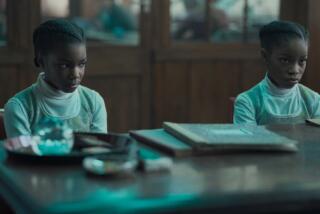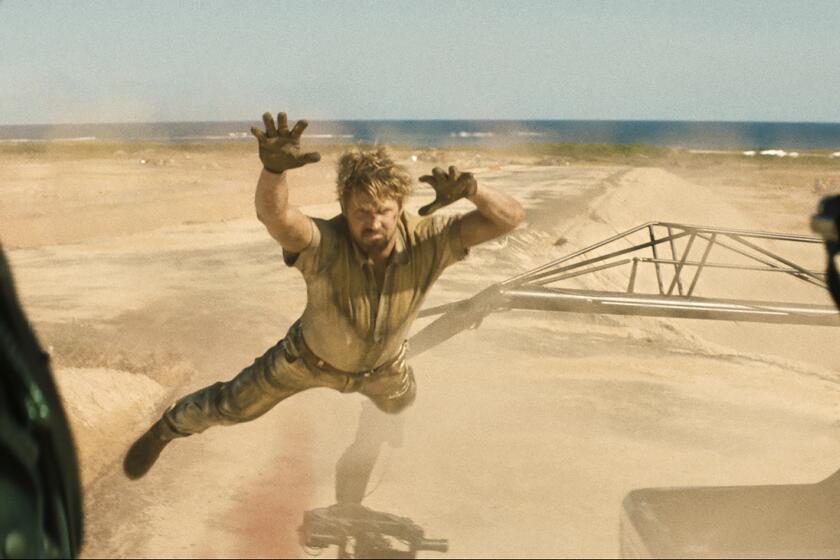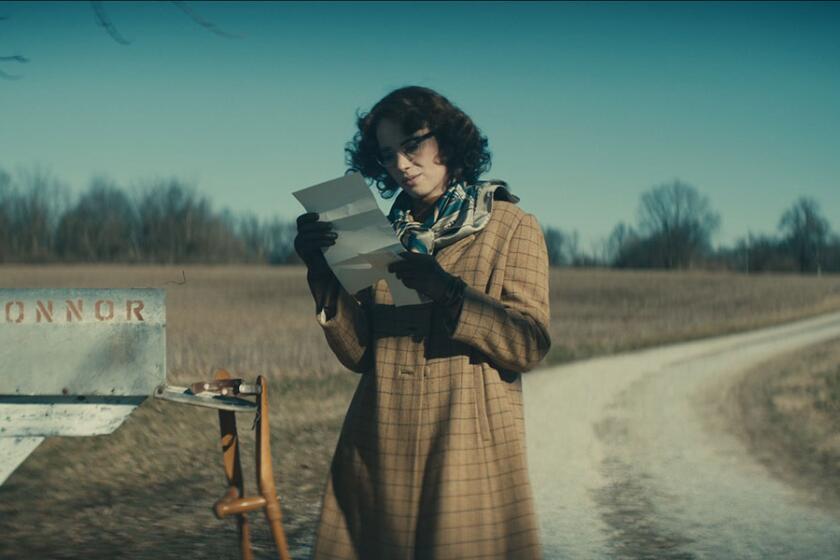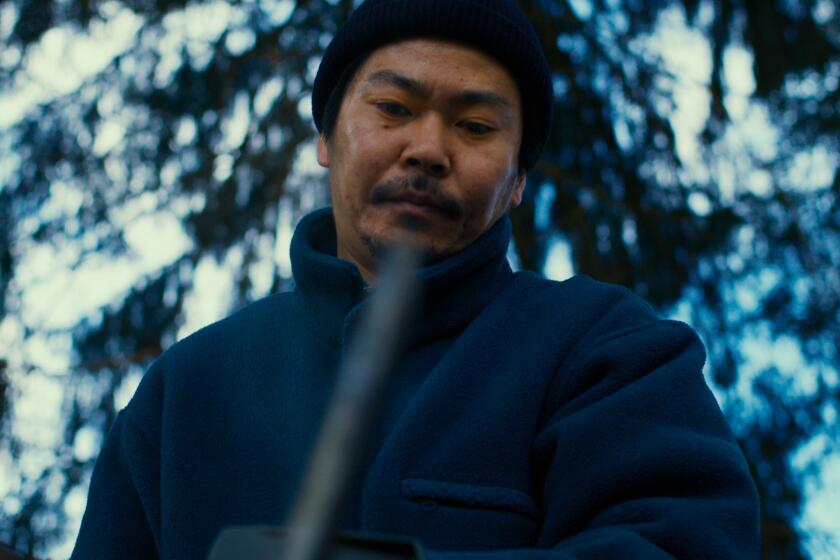Review: ‘Taking Woodstock’
There are roughly half a million valid Woodstock stories, personal ones of lives transformed by the three days of peace, love, drugs, music and mud experienced by the masses who made their way to Max Yasgur’s Catskills dairy farm for the legendary festival in the summer of ’69.
Director Ang Lee has chosen just one for “Taking Woodstock,” a meticulously rendered and achingly authentic portrait of a time and a place that is, by turns, sweeping and intimate, poignant and painful, funny and flat, emotional and emotionless. It’s a frustrating complication of a movie with a sprawling story and grand ambitions -- and some truly grand acting -- that stumbles almost as often as it soars. Bummer.
The soft center of the film and its unlikely protagonist is Elliot, a 34-year-old New York City interior designer still wearing polyester and polos played by Demetri Martin, probably best known for his very funny observational stand-up (check out “Jokes With Guitar” on YouTube).
Elliot’s got issues. He has a lanky, coltish discomfort with his body, and not just because he’s gay and can’t yet embrace it. He feels duty-bound to help his parents, Russian Jews forever damaged by their weeping wound of World War II memories. At the same time, he’s desperate to break away.
He would experiment with drugs, but they frighten him. Ditto life, love, the world as we know it. He has no real sense of who he is and even less of who he wants to be.
To put a fine point on it, Elliot’s a classic ‘60s head case and theoretically a perfect prism through which to view the Woodstock phenomenon. That the character is based on Elliot Tiber and his book, “Taking Woodstock: A True Story of a Riot, a Concert, and a Life,” who more by chance than initiative snagged the festival at the last minute after nearby Wallkill, N.Y., turned the concert promoters down, gives the film an organic feel.
Elliot’s off-center tale would seem a perfect fit for Lee, a master at the small story writ large, most tellingly in “Brokeback Mountain,” which won him an Oscar in 2006. What Lee and screenwriter James Schamus have given us is the “Accidental Tourist” version of events, the legend seen from just down the road. But Lee can’t quite commit to the distance, and there are too many side trips that distract him, making for a meandering narrative that would probably go down better with a few brownies.
The story starts early that summer. Elliot’s come home to help his parents hang on to their floundering Catskills motel, the El Monaco, its string of cabins a study in broken screens and peeling paint. His dreams are big ones -- a freshly painted sign promises a convention center and spa -- but the El Monaco’s financial straits dwarf them.
Then luck and fate deal him a fantastic hand, and within days the legions it will take to mount the festival descend on the motel like locusts with bags of cash in brown paper bags under their wings.
As a purple haze of hope and dope swirl around, a very fine cast of characters begins to emerge. Imelda Staunton as Elliot’s mother rules the fringe world of the El Monaco. Staunton is a miracle of rage and deprivation in a sweat-stained sleeveless cotton dress, her face a twist of tension and mistrust. If not for the bone-weary wisdom of Henry Goodman’s Jake, a gentle saint of a husband, her tirades would be unbearable. As it is, this nearly broken couple is a wonder to watch.
Liev Schreiber, who I’m beginning to believe never takes a wrong step, sashays in as Vilma, a muscled ex-Marine in heels and a clingy dress, packing all kinds of heat. By now, the motel has become a cash cow with a rapidly expanding clientele, and Vilma is soon serving as security and sage for the family, gathering them up in his beefy embrace.
As festival promoter Michael Lang, a business-savvy hippie with a white-boy afro and a Zen view of life, is an excellent Jonathan Groff, in his first film by way of Broadway. Emile Hirsch is Billy, the requisite whacked-out Vietnam vet who is never quite sure whether he’s back in the jungle or just the dense undergrowth of upstate New York.
There is a cast of thousands, but these are the movie’s critical players -- both individually and collectively so strong that, like the El Monaco’s financial problems, they overwhelm Elliot; and try as he might, they overwhelm Martin too, though much of the fault lies with the filmmaker.
Lee has been seduced by the ‘60s, and he’s unwilling to part with any of it.
So one minute Elliot is working on the motel’s code violations, the next he’s dealing with the theatrical troupe spending the summer in the barn working on being esoteric and getting naked, the next dealing with disgruntled town folk, the next joining the crowds walking toward the festival, the next riding with a motorcycle cop who’s embraced these hippies, the next stepping into a VW van for the requisite psychedelic experience, the next in bed with the well-cut carpenter, the next in another skirmish with his mom.
It’s a lot for a weekend that plays to nearly all of Lee’s strengths and his weaknesses. The filmmaker has an acutely sensitive eye for family and tradition and the cross-currents that trouble those deep waters, which serves “Taking Woodstock” well. But there are times when he holds himself apart, the observer who has wandered too far from the heart of things.
--
--
‘Taking Woodstock’
MPAA rating: R for graphic nudity, some sexual content, drug use and language
Running time: 2 hours
Playing: In limited release, locally at the ArcLight Hollywood; additional theaters on Friday.
More to Read
Only good movies
Get the Indie Focus newsletter, Mark Olsen's weekly guide to the world of cinema.
You may occasionally receive promotional content from the Los Angeles Times.







